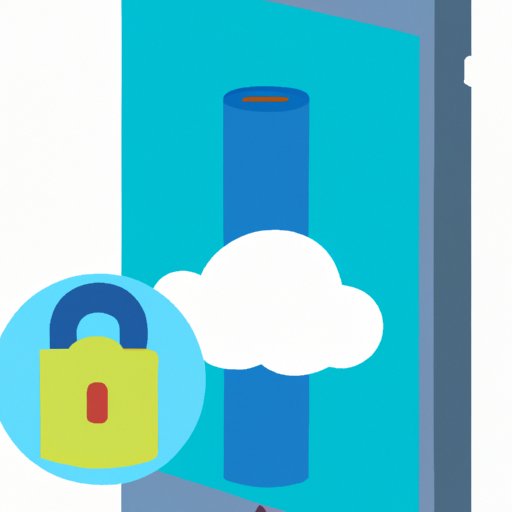Introduction
Data is information that can be stored and retrieved from a device or network. On a cell phone, data refers to anything that is sent or received via the phone’s cellular connection. This could include text messages, emails, photos, videos, music, and more. The purpose of this article is to explore the different aspects of data use on cell phones, including how it is stored, the benefits of using data on a cell phone, the different types of cellular data, tips for managing data usage, and potential risks.
How Data is Stored on Cell Phones
Data is stored on a cell phone in several different ways. Most cell phones have internal storage space, which is used to store apps, photos, music, and other data. Some phones also have expandable storage, which allows users to add additional storage space in the form of an SD card. Additionally, some phones allow users to upload their data to a cloud storage service, such as Google Drive or Dropbox.

Exploring the Benefits of Using Data on Cell Phones
Using data on a cell phone has many advantages. One of the main benefits is improved connectivity. With data, users can stay connected to friends and family no matter where they are. They can also access the internet to search for information, check emails, and more. Data also makes it easier to be productive when away from home or the office, since users can access documents, send emails, and collaborate with others. Finally, data allows users to access more information than ever before, giving them access to news, entertainment, and more on demand.

Understanding the Different Types of Cellular Data
When it comes to data use on cell phones, there are three main types of data: data plans, Wi-Fi networks, and hotspots. Data plans are purchased from a cellular provider and provide a certain amount of data per month. Wi-Fi networks are available in public places and provide free internet access. Hotspots are devices that create a personal Wi-Fi network and can be shared with multiple people.
Tips for Managing Your Data Usage on Your Cell Phone
Managing data usage on a cell phone can help ensure that you don’t exceed your monthly data limit and incur overage charges. Here are some tips for doing so:
- Set data usage limits – most phones allow users to set a data usage limit, which will alert them when they reach it.
- Turn off background data – this will prevent apps from automatically downloading updates or syncing data in the background.
- Turn off notifications – turning off push notifications for apps will prevent them from using data unnecessarily.
- Connect to Wi-Fi when available – connecting to Wi-Fi networks will help conserve cellular data.

Analyzing the Potential Risks of Excessive Data Use on Cell Phones
Although data use on cell phones has many advantages, there are also some potential risks associated with excessive data use. For example, excessive data use can lead to high costs, since most providers charge for data usage over a certain limit. Additionally, there are security concerns associated with data use, as hackers can gain access to sensitive information if a phone is not properly secured. Finally, frequent data use can lead to loss of privacy, as companies can track user activity and collect data about them.
Comparing Different Cell Phone Plans for Data Usage
When selecting a cell phone plan, it is important to consider the amount of data needed each month. Most providers offer different packages with varying amounts of data. Users should identify their monthly data needs and compare prices and coverage of different plans. They should also examine additional features offered by each plan, such as international calling, unlimited texting, and more.
Conclusion
In conclusion, data is a valuable resource for cell phone users. It allows users to stay connected, be productive, and access more information than ever before. However, it is important to understand the different types of data, manage data usage, and be aware of the potential risks associated with excessive data use. Comparing cell phone plans can help users find the best one for their needs.


